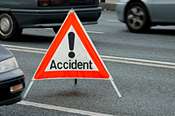Behind the wheel: Restricting young drivers

Restricting newly qualified young drivers from night-time motoring and carrying passengers of a similar age could help could save up to 200 lives every year, according to University research.
Restricting newly qualified young drivers from night-time motoring and carrying passengers of a similar age could help could save up to 200 lives every year, according to University research.
Every day four people are killed or seriously injured in crashes involving young drivers. Crashes involving new young drivers are increasing at a time when road traffic accidents in Britain are going down.
Australia, New Zealand, Canada and most parts of America have introduced graduated driver licensing (GDL) as a way of cutting down unnecessary death and injury on the roads.
GDL allows new drivers to gain experience under conditions of reduced risk.
It does this by ‘adding’ an intermediate phase between the preliminary and full driving licence.
During this period, which could last as long as two years, the newly qualified young driver is allowed to drive without supervision, but not at night and not with similar aged passengers. Also, he or she is not permitted to consume alcohol.
Speaking at Safety 2010, the 10th world conference on injury prevention and safety promotion, Dr. Sarah Jones, School of Medicine, outlined the benefits of implementing GDL which her research estimates could help save up to 200 lives every year, avoid 14,000 casualties, and save the UK economy £890million.
Dr. Jones, School of Medicine, said: “Most people in this country know someone who has been touched by the death or injury of a young driver. GDL works in other countries and there’s no good reason why it wouldn’t work here.
“The cost to the NHS would be significantly reduced. And it’s not only lives that would be saved by having GDL - insurance costs should drop substantially if the number of crashes involving young drivers were reduced.”
The study was compiled by analysing road accident data from 2000 to 2007.
Provided by Cardiff University
















